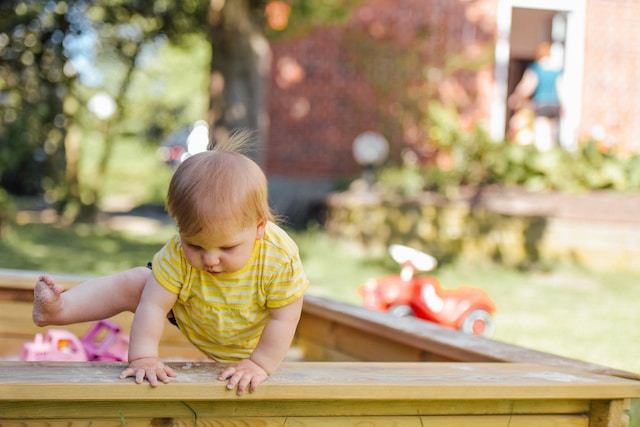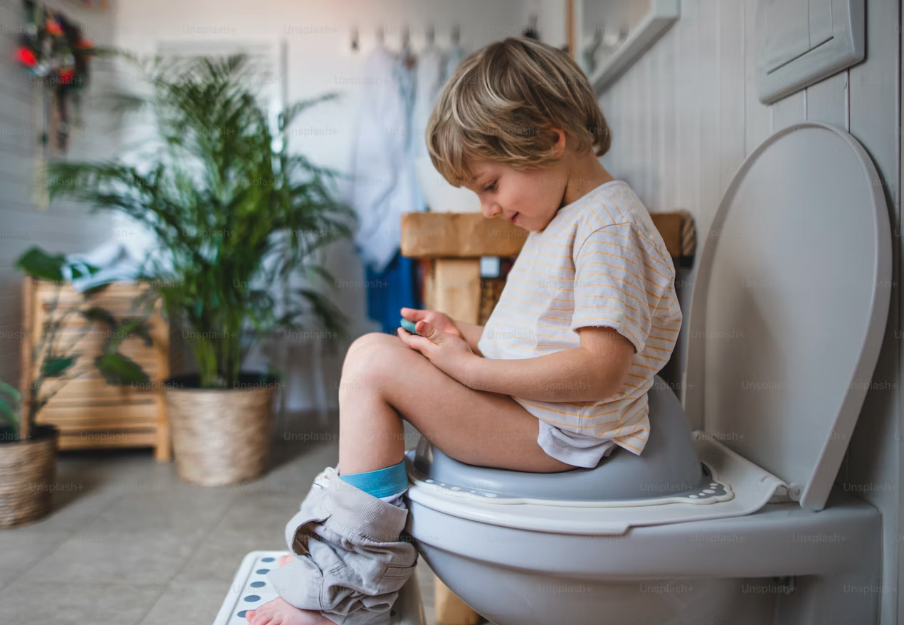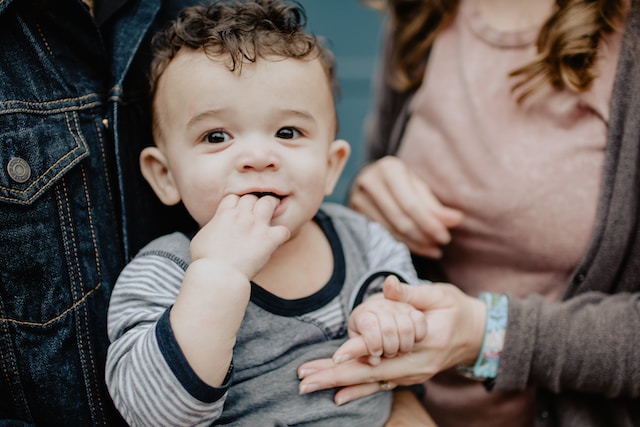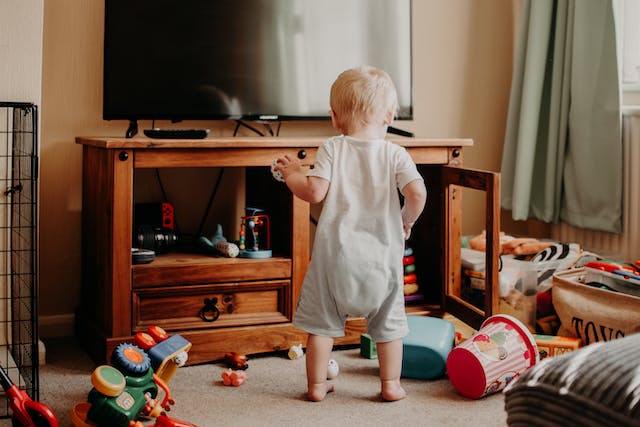Teaching Independence: Baby Steps and Giant Leaps

Toddlers and preschoolers are eager to grow and learn. Yet, they often experience clingy periods of neediness just before mastering new developmental challenges like walking, separation, and potty training. They teeter in an emotional push-pull of independence and dependence that can feel like fingernails-on-a-chalkboard to a confused parent – a new toddler clinging to a parent’s legs, a whining preschooler frozen by inaction, or a sobbing child overwhelmed by new emotions. How can a parent help without coddling or forcing?
Daily activities like eating and sleeping teach your child self-management skills that foster a sense of competence in the world. Age-appropriate challenges like peer disputes, newfound fears, or speaking up in preschool create opportunities for learning and growth. Each parent and each child actively negotiates a lifelong partnership of support and encouragement.
Frustration is a reliable teacher
Some frustration is essential to learning independence. Learning is a calculated risk that rarely happens with 100% success on the first try. It’s worth it when you see the pride your child feels from mastering a challenge! Help your child appreciate the small successes. Yesterday he couldn’t stab watermelon with fork; today he can. Last year you hid so he wouldn’t see you in the preschool hallway; this year he waves and says “I love you mommy”. Celebrate the progress – that’s learning.
Mirror Mastery
Your child discovers something every day about what she knows and what she can do. She’s packing a parachute for life. You are her mirror. When she sees doubt in your eyes, or when you rush into rescue her, she assumes she isn’t capable. Independent children find ways to be capable. They are given a few minutes to search for effective strategies – for example, to use their bodies to climb with increasing confidence or to push a bicycle around an obstacle. Believe your child is clever and resourceful. Stand by confidently as you give her the opportunity to prove it.
Imagination Unlocks Possibilities
Children acquire independence through pretend play. It’s there that toddlers practice empathy and rehearse self-care. It’s there that preschoolers can be super-heroes saving the world and fighting evil. Young children need hours of imaginative play every day – with dolls, in nature, or while parents are busy with other things. Give your child the props (open-ended imaginative toys like dolls, tools, blocks, pretend kitchens and pretend offices) and the prompts (books, stories, music and open-ended questions) to discover the possibilities of her imagination.
Let your child practice problem solving independently and repetitively in her play. This is her time to figure things out for herself. Play is the one place where your child absolutely rules her world.
Ask for What you Need
“Mommy help” can be empowering or it can be a crutch. If the request is frequent and automatic, defer assistance while you show your child he can manage the situation. From simple tasks like putting on shoes or getting dressed to opening juice boxes, your child may not need you for the little stuff. You can also ask your child to help you. A genuine request for a child’s help builds confidence and ability – though you may have to re-evaluate your standards and your timing.
Teaching a child to verbalize what he needs to solve a problem is, however, a powerful form of problem solving. Practice it often. Does your child need a paper towel to wipe up a spill? Does he need some tape to fix a favorite book? Or, maybe he needs a hug after a brutal temper tantrum. Independence grows when you know what you need to fix a problem.
Charge your Child’s Batteries
Independence can be exhausting. Ask any successful leader. All children, the cautious and the fearless, need time to integrate all this new learning into a comfy emotional foundation. While building independence, create a safety net of unconditional love – combined with spontaneous play and laughter. Toddlers and preschoolers need breaks from challenges and from busyness. They need snuggle time every day. They need affirming routines that ground them within a family. Create a family life that refuels everyone’s energy and stamina with love and attention. Independence begins at home.





Follow Us
Join the conversion. Make sure to follow us on our social platforms for the latest content and FamilyTime news.